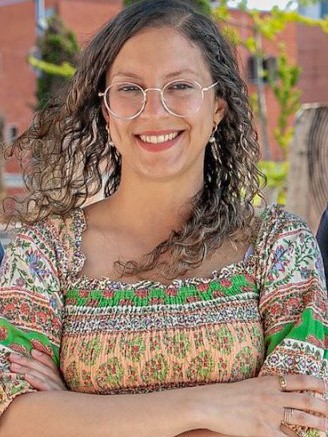resumo
Transition metal (TM)-modification of silica matrices are found in numerous materials for diverse applications. In other related hybrid materials, one tries to explore properties that result from combining the silica network with organic moieties, such as in the covalent grafting of polysaccharides onto amorphous nanosilicas. However, sol-gel routes for modification with TM have been less explored for hybrid siliceous materials. The present study demonstrates the effective modification of hybrid siliceous materials with TM (TM = Co2+, Ni2+, Cu2+, Zn2+) that result from a sol-gel method that uses as a precursor the polysaccharide kappa-carrageenan that was modified with a covalently alkoxysilane linked. Structural analysis and characterization studies of the derived carrageenan-silica hybrids were undertaken, and, in particular, the effects of the TM ions on the hybrids' properties have been assessed. This work clearly indicates that the modification with TM imposes changes on the morphological, optical, and thermal properties of the hybrids compared to the unmodified analogs. Hence, the practical applicability of the modification with TM using the sol-gel described here is not limited to the presence of the guest ion but also provides a tool for changing the properties of the host particles.
palavras-chave
COBALT; NANOPARTICLES; COMPOSITES; CHEMISTRY; RECOVERY; CATALYST; REMOVAL; SURFACE; FE
categoria
Materials Science
autores
Soares, SF; Daniel-da-Silva, AL; Trindade, T
nossos autores
Projectos
Bionanocompósitos magnéticos para a remoção de micropoluentes e reutilização da água (BIOMAG)
CICECO - Aveiro Institute of Materials (UIDB/50011/2020)
CICECO - Aveiro Institute of Materials (UIDP/50011/2020)
Associated Laboratory CICECO-Aveiro Institute of Materials (LA/P/0006/2020)
agradecimentos
This work is financed by Portugal 2020 through European Regional Development Fund (ERDF) in the frame of CENTRO2020 in the scope of the project BIOMAG, CENTRO-01-0145-FEDER-181268 and in the scope of the project CICECO-Aveiro Institute of Materials, UIDB/50011/2020 & UIDP/50011/2020 & LA/P/0006/2020,financed by national funds through the FCT/MEC (PIDDAC). The NMR spectrometers are part of the National NMR Network (PTNMR) and are partially supported by Infrastructure Project No 022161 (co-financed by FEDER through COMPETE 2020, POCI and PORL and FCT through PIDDAC). Open access funding provided by FCT|FCCN (b-on).




